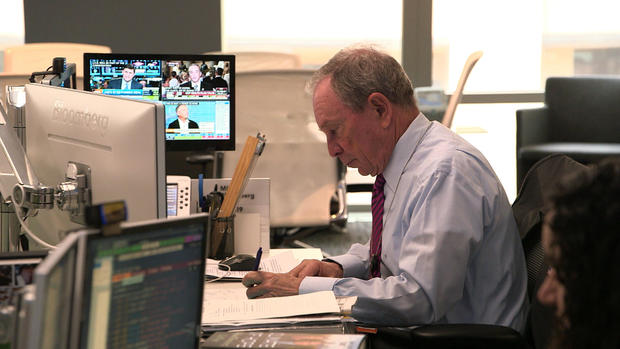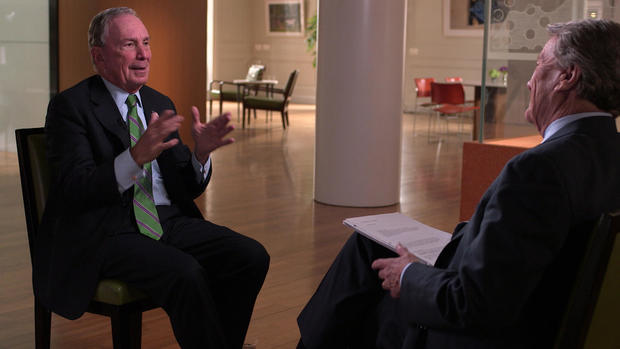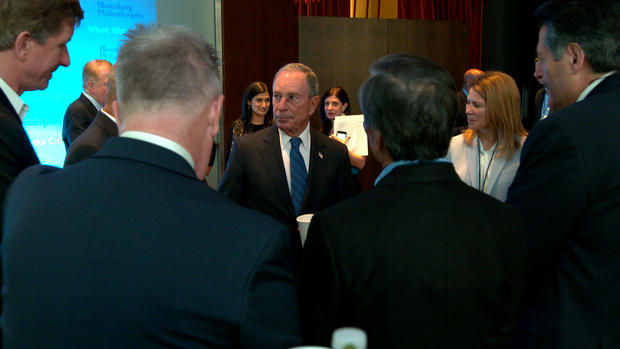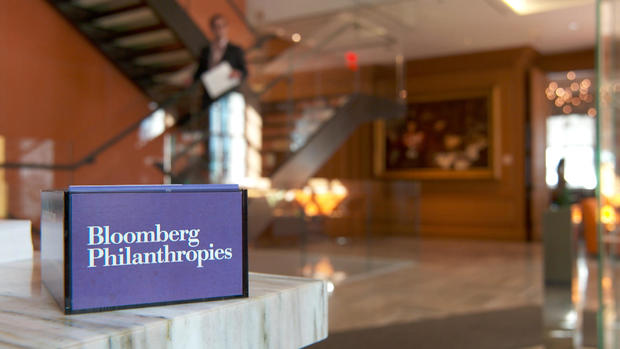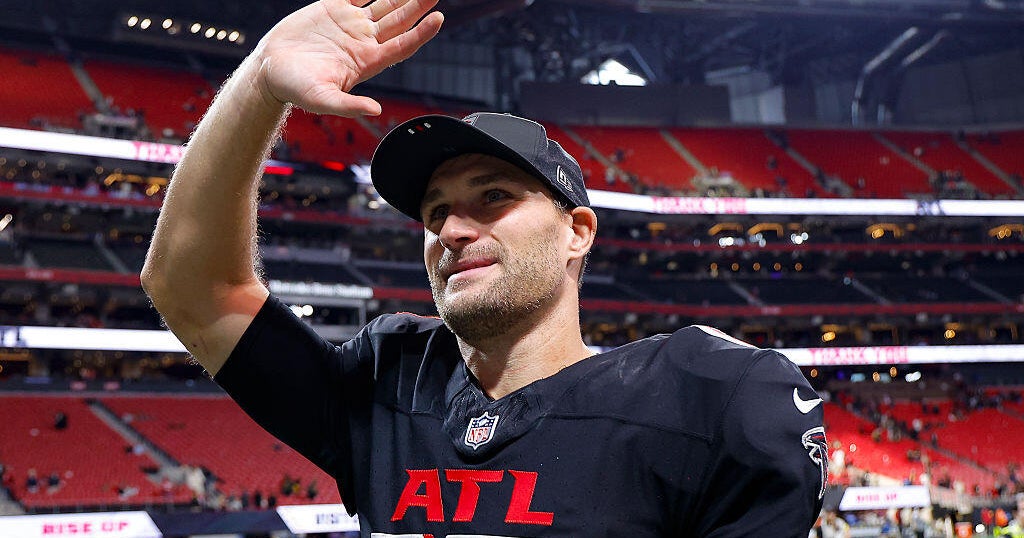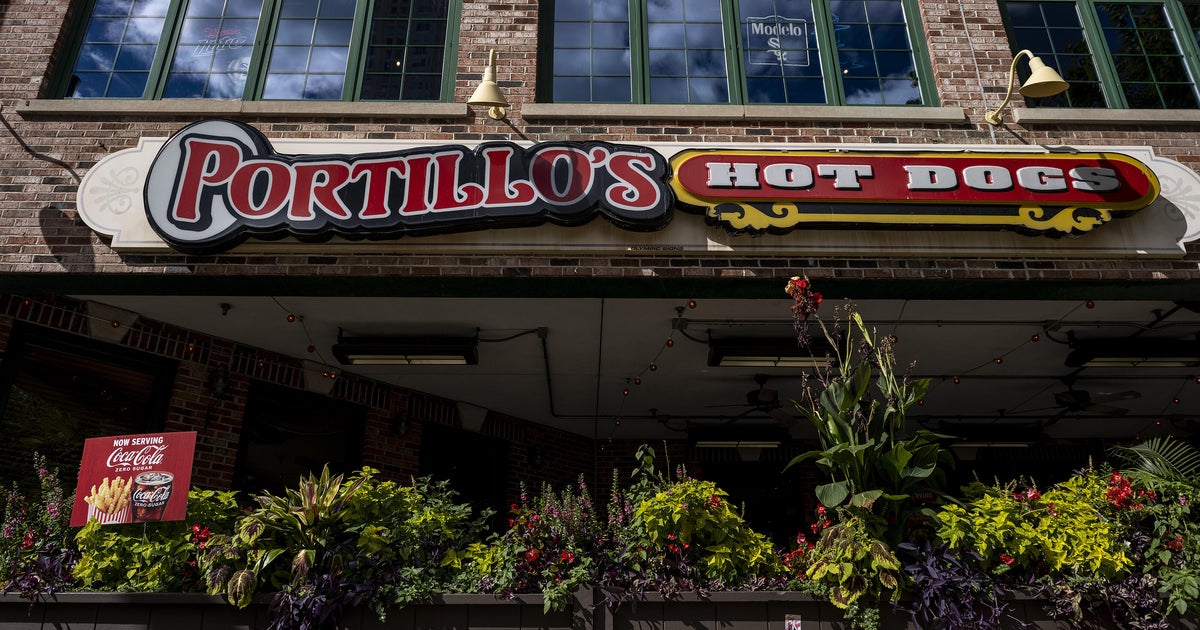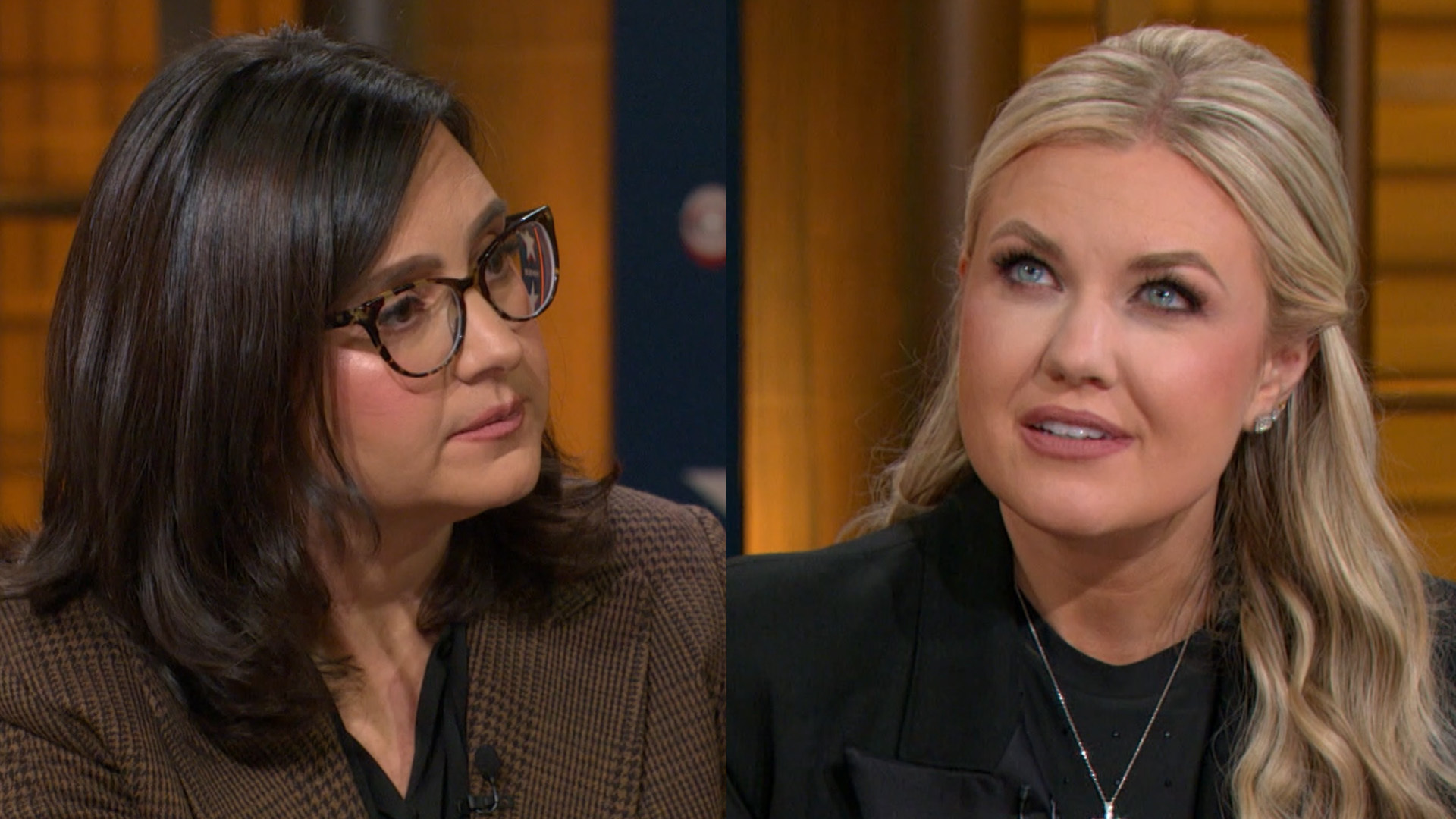Michael Bloomberg's net worth is $47B, how will he use it?
- So far, Bloomberg has given away $5B to causes that often dovetail with his political interests, like gun control and the environment.
- The ex-mayor of NYC would have bankrolled a 2016 presidential campaign if he thought he had a “reasonable chance” of getting elected.
- Who would have been his running mate? Retired Navy Adm. Mike Mullen, say aides.
- He’s been ridiculed for spending $1B+ on public health initiatives, but points out the life expectancy of New Yorkers increased by three years while he was mayor.
The name Bloomberg is a worldwide brand that could refer to a number of things…a cable channel, a radio network, a news service, a magazine, or a 75-year-old former mayor of New York who founded the Bloomberg Financial media empire and flirted with running for president. According to Forbes Magazine, Michael Bloomberg is the 8th richest man in the world, and one of a growing number of extremely wealthy people who plan to give most of their money away…releasing a torrent of private philanthropy that is already having an impact on the country.
“Oh, it’s more money than anybody could possibly spend on themselves. The issue is what can ya do with it?” Mike Bloomberg
Of that group, Michael Bloomberg is one of the most interesting and straight forward, and he agreed to talk to us about how he came to accumulate $47 billion dollars…and what he hopes to accomplish by giving it away.
Michael Bloomberg: Oh, it’s more money than anybody could possibly spend on themselves. The issue is what can ya do with it? You can’t take it with ya, although I have a cartoon at home of a guy on his death bed in a hospital with the rails around and his family looking down like vultures. And he looks up and he says, “I know I can’t take it with me, but I can take the access code.”
At 75, “Mike” Bloomberg, as he likes to be called, is a long way from retirement. Most days you’ll find him in the gleaming Oz-like tower that bears his company’s name....a high-energy, egalitarian work place, at the crossroads of media, information technology and capitalism.
Steve Kroft: This is an incredible building, office building. It looks like, I don’t know what it looks like.
Michael Bloomberg: What I’m trying to do is to create excitement. So people say, “My goodness, what’s going on here? There’s something different about this company.” The employees, you want them to get psyched. And it’s a chance to meet each other. My job is to get people to work together.
With free food and no offices, even for Bloomberg, this might be considered one of the world’s great corporate headquarters…if it weren’t for the fact that Bloomberg L.P. is not a corporation, it’s a limited partnership, a private company….and 85 percent of all of this and a lot more belongs to Mike Bloomberg.
Steve Kroft: Is this is a technology company? Is it an information company?
Michael Bloomberg: Yes and yes. We try to get information people need, store it, present it, and let you use it.
When Bloomberg started out as clerk on the Wall Street trading desk of Salomon Brothers in 1966 he thought there must be a better way to get up to the minute financial data than combing through the Wall Street Journal. He spent 15 years trying to convince his partners at Salomon that computers could be the answer. When they fired him in 1981, he used his $10 million severance to hire three young engineers and launch his startup.
Michael Bloomberg: When I started the company, it was before PCs were invented. I know you don’t think there was a day. We literally built our own. And the Internet hadn’t been invented. So we created our own. We’d rent a telephone line and then had a little device that let you branch out when you got to Chicago or wherever.
“I tend to be reasonably blunt, maybe a little bit too much. But I just-- I always respected people that tell the truth. And I’ve always wanted people to tell me the truth.” Mike Bloomberg
Ever since then Mike Bloomberg has pretty much done things the way he wants to.
Michael Bloomberg: Where else have you seen a curved escalator? We needed a curved one. It fit into the space, and the architect said, “Doesn’t exist.” And I said, “You go to Japan, you’ll find a curved one.” And they did of course.
Bloomberg has a degree in electrical engineering from Johns Hopkins University, and it is that discipline of an engineer that defines his character and personality: detached, analytical, pragmatic.
Steve Kroft: These are some of the words that people have used to describe you. Tell me…
Michael Bloomberg: Are these all my relatives, or?
Steve Kroft: No, no, no. No. I don’t think so. Well, maybe.
Michael Bloomberg: Depends whether it’s good or bad.
Steve Kroft: Blunt.
Michael Bloomberg: I tend to be reasonably blunt, maybe a little bit too much. But I just-- I always respected people that tell the truth. And I’ve always wanted people to tell me the truth.
Steve Kroft: Self-confident.
Michael Bloomberg: Reasonably self-confident. Been successful. Don’t think that-- I’m—I’d-- I’m infallible. Will always make mistakes.
Steve Kroft: Arrogant. You’ve certainly heard people say that.
Michael Bloomberg: Um, I suppose I come across that way sometimes. But my mother would have told me, “Don’t.”
Even his late mother would probably forgive him for the occasional lapse of humility given the size and the scope of the Bloomberg empire. Nearly 20,000 employees in 192 locations around the world, gathering, writing, transmitting, and analyzing information that will move markets.
Michael Bloomberg: These people are doing one-minute radio business updates for a hundred different radio stations around the country.
But the real money and most of the profits come from a mysterious piece of equipment known as the Bloomberg Terminal that sits on the desks of titans and traders all over the world.
Michael Bloomberg: Sound, pictures, graphics, tabular data. Different ways to look at the markets.
It’s really a customized keyboard and closely guarded proprietary software, linked to a private computer network, that provides a volume of data that’s unavailable anywhere else. Live streams from 300 stock exchanges, curated tweets, the exact location of oil tankers around the world. The kind of stuff 325,000 professionals pay $25,000 to rent for one year. If you do the math it adds up to about $8 billion.
Michael Bloomberg: But let’s say you want to look at a stock, General Motors, for example.
After using his fingerprint to log onto his account, Bloomberg gave us a peek behind the curtain.
Michael Bloomberg: On the left are all of the companies that sell parts and to General Motors. And on the right are all of the companies that buy General Motors output. Generally cars. The different indices that General Motors stock is in. Here are the other companies that compete with them. Here are the big holders of their stock, analysts that follow it, who’s on the board, who works in the company.
Steve Kroft: Why has nobody else done this?
Michael Bloomberg: For an individual company to do it, it’s probably too expensive, unless it’s your business. This is our business.
Bloomberg has not only left his mark on Wall Street. He has left it on New York City. He took us up in a company helicopter he was piloting to have a look.
Michael Bloomberg: LaGuardia, helicopter number six Mike Victor.
The thing he likes best about flying, he said, is if you don’t follow the rules you die.
By 2001, Bloomberg was already worth $five billion and looking for a new challenge…he wanted to run something big like the UN or the World Bank. He settled on New York City, taking leave from his job and spending a quarter of a billion dollars of his own money to get himself elected mayor three times.
Michael Bloomberg: Here is the new World Trade Center. You can see the big tall building and others.
Steve Kroft: Right.
The first time he was elected was just two months after 9/11…he managed the resurrection from the rubble.
Michael Bloomberg: Right through there you can see the Oculus, which is this big shopping thing. This whole part of Manhattan before was sort of desolate after 9/11, we now have 25 hotels. Now it’s a bustling residential community as well.
He saw the city through the economic crisis of 2008…and while he was mayor development and construction boomed and the crime rate dropped.
Michael Bloomberg: Hudson Yards, which is this big development. Phenomenally successful development. Created an enormous amount of jobs, enormous amount of new office space.
He was sometimes ridiculed for his public health war on smoking, trans fats and soft drinks…but he points out life expectancy of New Yorkers increased by three years while he was in office.
Steve Kroft: Did you enjoy your time as mayor?
Michael Bloomberg: Loved every minute of it. It’s a wonderful job. The challenges are enormous, but you have a great opportunity to make a difference.
He was successful enough in the job to twice consider running for president, but he was never able to find a solid constituency in either party. Last year, he thought about running as an Independent and was prepared to spend a billion dollars of his fortune to get elected, aides say. He’d even decided on Retired Admiral Mike Mullen as a running mate.
Steve Kroft: And you came close. You looked at it. But you didn’t pull the trigger.
Michael Bloomberg: If I thought we could win, or had a reasonable chance, I would have done it. It would be totally unlikely, very unlikely that an Independent could win. And in my case, I was mayor for a long time. People know where I stand. I couldn’t pretend to be something I’m not. For the Republicans, I’m pro-choice, pro-gay rights, pro-immigration. That’s a good start there. You’ll never get their nomination. On the Democratic side, I believe in teacher evaluation. The big banks, we need to help them rather than just keep trying to tear them down. Those are not particularly things that will help you get the nomination.
He campaigned hard against Donald Trump, his New York rival in the general election, calling him a con man at the Democratic convention in Philadelphia.
Michael Bloomberg: I’m a New Yorker, and I know a con when I see one!
Steve Kroft: Have you spoken to Trump since he’s in the White House?
Michael Bloomberg: Yes, once I called him and congratulated him. We joked about my speech in Philadelphia. And before he finished the conversation, he gave me his personal phone number, his cell phone. I haven’t called him, so I don’t know if-- whether he’d answer it now. But-- he’s-- I hope he does a good job.
Steve Kroft: You’re not gonna run for office again?
Michael Bloomberg: Well, I’m 75 years old. It’d be an age issue, I suppose. I’ve got plenty of things to do. And maybe I’ll run for president of my block association, but not much more than that.
Bloomberg remains incredibly influential and was received as a world leader when he traveled abroad last month for meetings on climate change. He is still trying to make a difference and using his incredible wealth to do it.
Almost all of his fortune will end up with his charitable foundation. He’s already given away more than $5 billion to causes that often dovetail with his political interests.
Steve Kroft: There is now a fairly crowded field out there of people who are incredibly wealthy that are giving money to advance their own political agendas.
Michael Bloomberg: Well, if they-- if the projects—
Steve Kroft: The Koch brothers, for one. Or George Soros.
Michael Bloomberg: I know George Soros and I know the Koch brothers. And, while I don’t agree with any of those three on a lotta things, I think it’s fair to say, ‘cause I know them reasonably well, they really believe and they really are trying to do something. They really want to change the world. You, for example, in the Northeast couldn’t get treated for cancer at any major university or hospital without being in a Koch cancer building. They’ve given an enormous amount of money. And if you get cancer, you should start saying thank you to the Kochs.
To some it’s just another example of the super wealthy having a disproportionate influence on political debate and public opinion. Bloomberg has spent a billion dollars trying to get people to quit smoking, $135 million to battle the NRA on gun control, and a $100 million to assist the Sierra Club and its lawyers in shutting down more than 250 coal fired plants.
Steve Kroft: You’re not out of the political arena altogether. You’re, you’re very active in a number of issues, coal and the environment being one of them right now--
Michael Bloomberg: Yeah. Coal is a very dirty fuel. It’s been killing people. Around the world, people are saying, “No more coal.”
In new a book with Carl Pope…Bloomberg writes, “I don’t have much sympathy for industries whose products leave behind a trail of diseased and dead bodies.” He’s more sympathetic to the miners.
Michael Bloomberg: Coalminers have lost their jobs. It’s very tragic, and we have to do something about it. Technology’s come in. Technology has replaced most of these coalminers. They didn’t lose their jobs for any reason other than it was automated. And now we have a bunch of people who have becau-- no fault of their own, they’ve lost their job. Those jobs don’t exist anymore. Somebody said-- to promise that coal jobs are coming back is like promising the workers who used to work at Eastman Kodak that film is gonna come back. Not likely to happen.
Steve Kroft: There are people out there would say, “Look, is it Mike Bloomberg’s job to give the Sierra Club $100 million to go out and try and--”
Michael Bloomberg: It’s not my job. I wanted--
Steve Kroft: --”250-- coal plants?”
Michael Bloomberg: Well, keep in mind, Mike Bloomberg’s kids and grandkids are breathing that air just like the coalminers’ families are breathing that air. And the coalminers are the ones that have the conflict. They want their jobs, I understand that. They need to be able to feed their families. They also have to worry about their health and the health of their families.
Steve Kroft: Are you giving money to try and find these coal-- to try and reeducate and give them new skills?
Michael Bloomberg: We’re certainly working on trying to find ways to create jobs, not just for them. But technology, which is what cost the coalminers their jobs, not the Sierra Club incidentally. Long before the Sierra Club started this, coalmining jobs went from 250,000 in the country to 70,000 in the country.
Bloomberg sees personal philanthropy in the tradition of Carnegie, the Rockefellers and the Mellons… not as a threat to democracy, but as a way to do important things that are not politically feasible. And as always, Mike Bloomberg trusts his judgment.
Steve Kroft: Is there anything you want that you don’t have?
Michael Bloomberg: I like what I see when I look in the mirror. If I get sentimental, I look and say, “Uh. It’s a bad day. They beat up on me,” this, that, and the other thing. But ya know? We’ve spent one billion trying to convince people to not smoke. It’s been phenomenally successful. We’ve probably saved millions of lives. There aren’t many people that have done that. So, you know, when I get to heaven, I’m not sure I’m gonna stand for an interview. I’m going right in.
